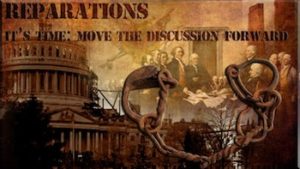
*On this date in 2016, A United Nations working group visiting the United States walks away "extremely concerned about the human rights situation of African Americans," members said in a preliminary report released, in which they urged the US government to address the legacy of slavery with "reparatory justice," a national human rights commission, and ongoing criminal justice reform.
"The colonial history, the legacy of enslavement, racial subordination and segregation, racial terrorism, and racial inequality in the US remains a serious challenge as there has been no real commitment to reparations and to truth and reconciliation for people of African descent," wrote members of the UN Working Group of Experts on People of African Descent, after a 10-day trip to the United States.
The Working Group will prepare a final report to deliver in September 2016, as part of the International Decade for People of African Descent, which the UN began in 2015 to recognize and remedy the ongoing impacts of slavery and colonialism on more than 200 million people of African descent living around the world. Many of its preliminary recommendations are drawn from a similar report following a study visit to the US in 2010.
"The state is also not acting with due diligence to protect the rights of African American communities," the group wrote, citing problems from disproportionate imprisonment and police violence to hate crimes such as the massacre at Charleston's Emanuel African Methodist Episcopal Church in June 2015: Their recommendations do not specify what is meant by "reparatory justice." Frequently, however, reparations involve financial compensation for a community's violated human rights, as when West Germany paid more than $7 billion (in today's currency) to the (then) newly created state of Israel and the World Jewish Congress, a move bitterly opposed by many Germans and Jews alike.
The working group does encourage Congress to pass H.R. 40, a bill introduced year after year by (the late) Rep. John Conyers (D-MI), the longest-serving member of Congress. Rep. Conyers, who is black, was first elected in 1965. H.R. 40 calls to create a commission to study slavery's past and present impact on African American communities, and to consider appropriate reparations. The debate about American reparations to descendants of slaves reignited in 2014 when The Atlantic's Ta-Nehisi Coates published "The Case for Reparations" and walked readers through centuries of discriminatory history, from slavery to Jim Crow Laws, to "redlining" housing policies, to argue that the country needed a national discussion about reparations. Mr. Coates did not endorse a specific reparations policy, but encouraged passing H.R. 40, and cited several other proposals, from dollar amount estimates to job-training plans. While some arguments for "reparative justice" focus on financial compensation, many also emphasize that the' price, methods, and benefits of reparations are about more than money. Cash reparations are not unprecedented in the US, however. In 1988, then-President Ronald Reagan signed legislation offering $20,000 to each Japanese-American imprisoned in internment camps during World War II.
Cash reparations for Blacks are a deeply unpopular idea with many voters and opposed by many politicians, as well. 2016 presidential candidate Bernie Sanders, for instance, said he believes reparations would be "divisive." The Democratic presidential candidate does, however, believe the US should issue a formal apology for slavery. In a 2014 YouGov poll, only 15 percent approved. Among white Americans, that number was just 6 percent; among African Americans, it was 59 percent. Seventy-eight percent of white respondents said that slavery was "not a factor at all" or a "minor factor" contributing to African Americans' lower average wealth today.